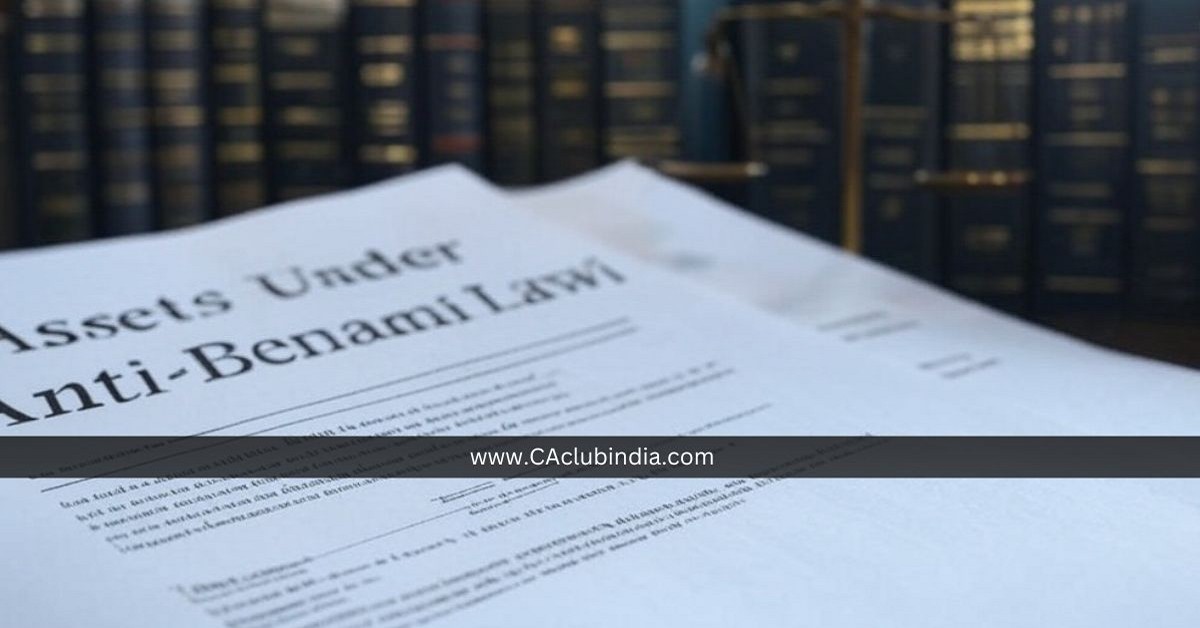In a significant ruling dated November 26, 2024, the Adjudicating Authority under the Prohibition of Benami Property Transactions (PBPT) Act, 1988, upheld the Income Tax Department's power to attach assets under the anti-benami law, even if the actual owner of such properties remains unidentified. The order confirms a 2023 attachment of land assets issued by the Lucknow unit of the Income Tax Department.

Case Overview: Benami Land Parcels in Lucknow
The case revolves around five land parcels in Kakori, Lucknow, valued at over ₹3.47 crore, allegedly acquired through unaccounted cash by three realty groups. The Benami Prohibition Unit (BPU) of the Income Tax Department issued a provisional attachment order in October 2023, naming Ravi Kumar, an office boy at a real estate firm, as the 'benamidar' (the person in whose name the benami property is held).
Interestingly, the provisional order did not name a "beneficial owner" - the actual beneficiary of the assets. The Authority, however, upheld ₹3.10 crore worth of the attached properties while dropping charges against two companies (Pintail Real Estate LLP and Excella Premioinfra LLP) and an individual (Shiv Kumar) due to insufficient evidence.
Legal Interpretations and the Role of Section 2(9)(D)
The defendants argued that the attachment order should be quashed since it failed to identify a beneficial owner as required under the PBPT Act. However, the Adjudicating Authority cited Section 2(9)(D) of the Act, which allows attaching properties where the person providing the funds is "untraceable or fictitious."
The Authority clarified that invoking a wrong subsection, such as Section 2(9)(A) instead of Section 2(9)(D), does not invalidate the attachment order, as long as the statutory authority has jurisdiction. This aligns with a 2009 Supreme Court ruling that upheld the validity of such actions based on jurisdiction.
Further Developments and Implications
Following the Authority’s ruling, the Lucknow BPU recently attached an additional five land parcels in Mohanlalganj, valued at over Rs 5.68 crore. The Authority also named Haresh Kumar Mishra as an abettor in the case and directed the Income Tax Department to investigate other assets reportedly purchased in Ravi Kumar's name.
This decision highlights the government’s robust stance against benami transactions, reinforcing that the lack of a named beneficial owner will not deter action under the PBPT Act. It sets a precedent for tackling cases where fictitious or untraceable entities are involved in financial irregularities.
Key Takeaways
- The Income Tax Department can attach assets under the PBPT Act without identifying a "beneficial owner," leveraging provisions like Section 2(9)(D).
- The ruling underscores the flexibility of the anti-benami law to address complex cases involving fictitious entities or unaccounted cash.
- This crackdown sends a strong message about the government’s commitment to rooting out tax evasion and financial fraud.





 CAclubindia
CAclubindia
